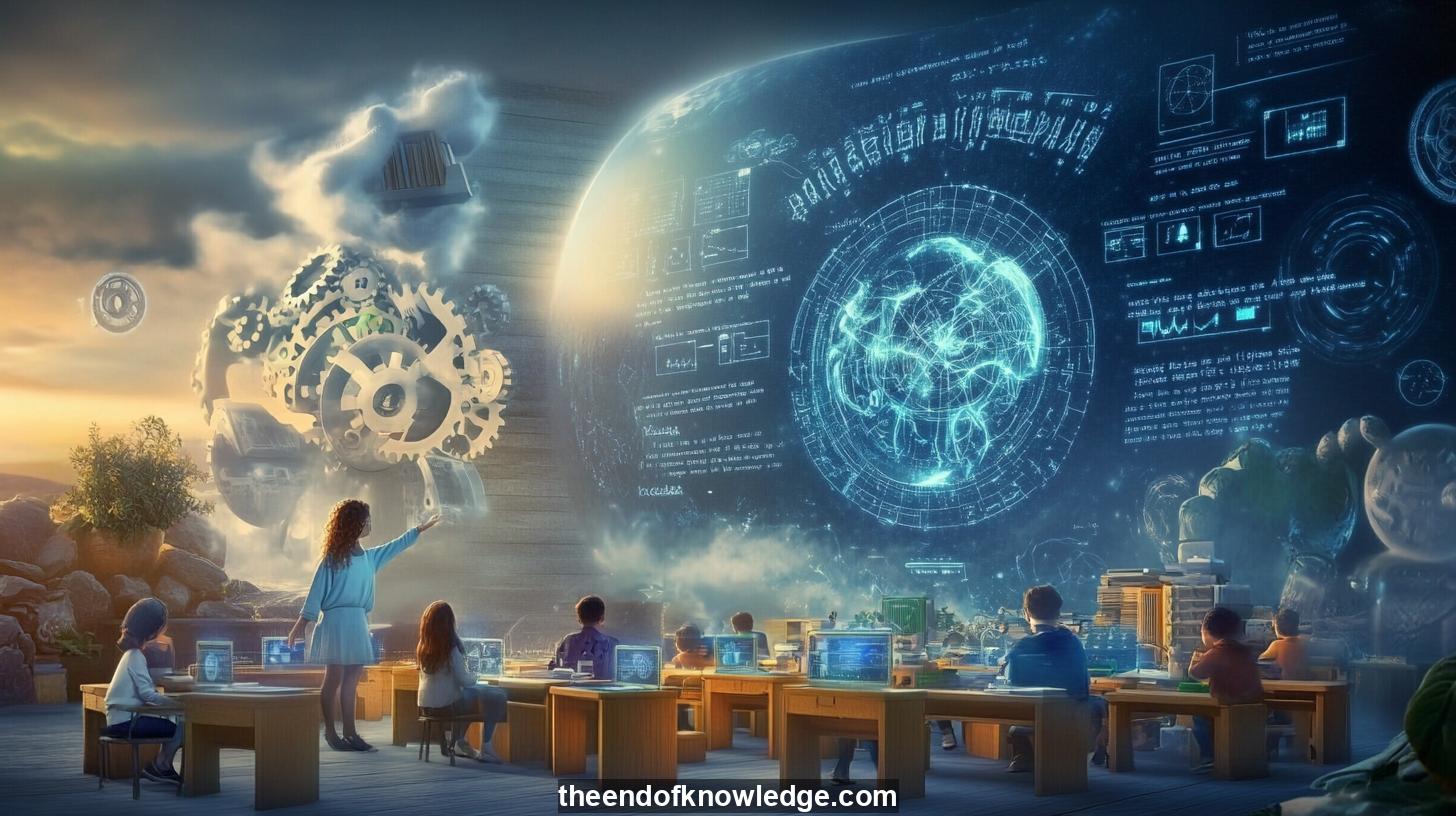 >
>
Concept Graph, Resume & KeyIdeas using DeepSeek R1 :
Resume:
30 Key Ideas:
1.- The rapid advancement of AI necessitates continuous reflection on its impact on education.
2.- Education should focus on developing critical thinking and creativity rather than rote learning.
3.- AI presents opportunities for personalized learning and enhanced educational experiences.
4.- Traditional educational frameworks may need to be redefined to incorporate AI effectively.
5.- Ethical considerations, including data privacy and bias, must be addressed in AI-driven education.
6.- The integration of AI in education could exacerbate existing inequalities if not managed carefully.
7.- Educational institutions need to redefine their missions to align with the demands of the AI era.
8.- AI tools can support teachers in their roles but should not replace human interaction in education.
9.- Personalized learning experiences can be enhanced through AI-driven adaptive systems.
10.- The discussion emphasizes the need for a balanced approach to technology integration in education.
11.- Experts highlight the importance of fostering creativity and adaptability in students for future challenges.
12.- The role of AI in education raises questions about the future of work and the skills required.
13.- Ethical AI development and deployment are crucial to ensure equitable educational opportunities.
14.- The program features insights from experts like Marta Gutierrez and Alfredo Romeo on AI's impact on education.
15.- The need for ongoing professional development for educators in AI integration is stressed.
16.- AI can provide real-time feedback and assessment, enhancing the learning process.
17.- The potential for AI to support diverse learning needs, including neurodivergent students, is explored.
18.- The discussion addresses the global competition in AI development and its implications for education.
19.- The importance of interdisciplinary approaches in education to prepare students for an AI-driven world is emphasized.
20.- The program serves as a platform to explore the transformative potential of AI in education, addressing both opportunities and challenges.
21.- The integration of AI in education requires a focus on equity and inclusion to avoid widening disparities.
22.- The role of AI in education raises questions about the future role of teachers and educational institutions.
23.- The need for policy frameworks to regulate AI in education and ensure ethical standards is highlighted.
24.- The discussion emphasizes the importance of preparing students for a world where AI is ubiquitous.
25.- The program underscores the need for collaboration between educators, policymakers, and technologists to shape the future of education.
26.- The potential for AI to enhance access to education for underserved populations is explored.
27.- The discussion addresses the challenges of ensuring data security and student privacy in AI-driven educational systems.
28.- The importance of fostering digital literacy and critical thinking in the age of AI is emphasized.
29.- The role of AI in education is seen as a tool to support human potential rather than replace it.
30.- The program highlights the need for continuous innovation and adaptation in education to meet the challenges of the AI era.
Interviews by Plácido Doménech Espí & Guests - Knowledge Vault built byDavid Vivancos 2025